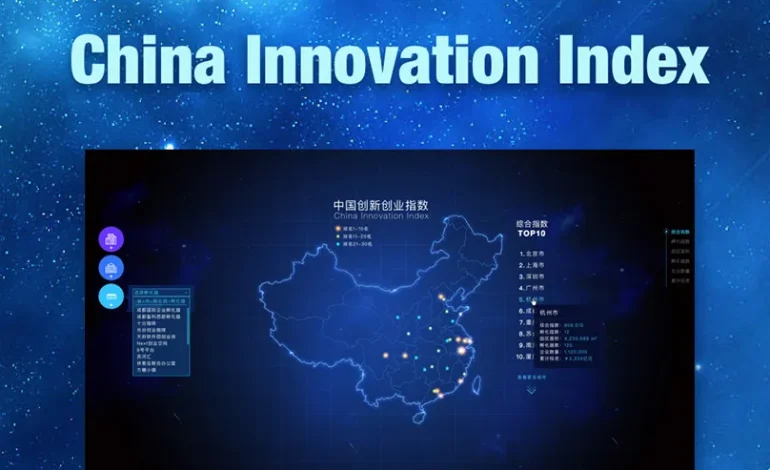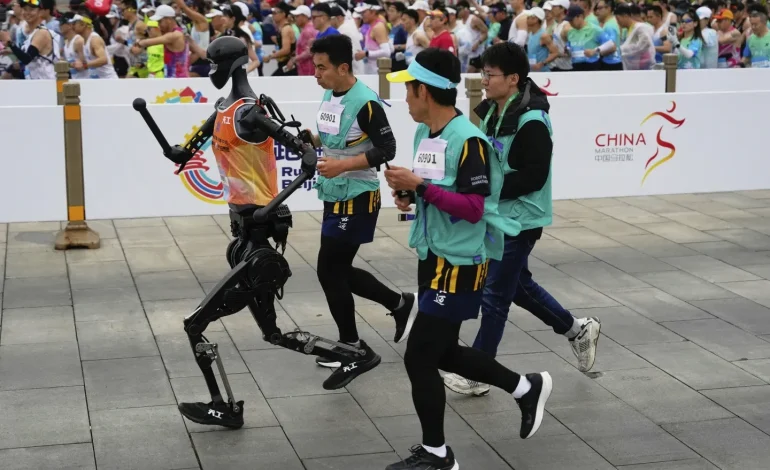Beijing’s Digital Innovation Index Reaches Record High

Introduction
Beijing’s Digital Innovation Index has reached a record high in 2025, reflecting the city’s rapid advancement in technology adoption, research development, and digital infrastructure. The index, published by the Beijing Municipal Bureau of Statistics, evaluates the city’s performance across areas including artificial intelligence, cloud computing, smart city projects, and digital entrepreneurship. The record increase underscores Beijing’s growing role as a national and international hub for technological innovation, knowledge-intensive industries, and high-tech talent development.
Overview of the Digital Innovation Index
The Digital Innovation Index measures key metrics such as patent filings, research and development spending, technology startup formation, and the adoption of digital services across government, education, and industry. Beijing’s performance has improved significantly due to substantial investments in AI, smart manufacturing, fintech, and urban digital infrastructure.
According to the 2025 report, Beijing achieved a 15 percent increase in overall digital innovation scores compared with 2024. Major contributing factors include the proliferation of AI labs, expansion of cloud computing infrastructure, accelerated adoption of IoT in public services, and robust support for digital entrepreneurship.
Key Drivers of Innovation
Several factors have driven Beijing’s record performance in digital innovation:
- AI and Machine Learning Development: Universities and private companies in Beijing have accelerated research in AI, covering sectors such as healthcare diagnostics, autonomous vehicles, and robotics.
- Digital Infrastructure Investments: Expansion of high-performance computing centers, 5G networks, and cloud platforms has facilitated faster data processing, better connectivity, and enhanced innovation capacity.
- Smart City Initiatives: Projects integrating IoT, AI, and big data in public transport, energy management, and urban services have contributed to efficiency gains and technology adoption.
- Startup Ecosystem Growth: Beijing has become a magnet for technology startups, supported by venture capital, incubators, and government programs that nurture innovation-driven enterprises.
Technological Advancements
Beijing’s rise in the index is supported by concrete technological achievements. AI algorithms are increasingly deployed in traffic optimization, healthcare diagnostics, and predictive urban management. Cloud computing platforms now host large-scale AI models for industrial and research purposes.
Fintech innovations, including digital payment solutions, blockchain applications, and AI-assisted risk assessment tools, have expanded the scope of financial technology adoption in both public and private sectors. Startups focusing on green technologies and autonomous solutions have also benefited from infrastructure improvements and policy support.

Policy Support and Government Initiatives
Beijing’s government has implemented several measures to encourage digital innovation:
- R&D Subsidies: Financial support for AI research, robotics, and software development in universities and tech firms.
- Innovation Zones: Designated districts providing tax incentives, incubators, and networking opportunities for startups.
- Data Governance Frameworks: Policies facilitating safe and ethical use of data for AI applications while ensuring privacy and cybersecurity.
- Talent Recruitment: Programs attracting domestic and international technology experts, including AI specialists, data scientists, and engineers.
These initiatives create a conducive environment for innovation, reduce barriers to technology deployment, and encourage collaboration between academic institutions, startups, and multinational corporations.
Economic and Industrial Implications
Beijing’s leadership in digital innovation has wide-reaching economic implications. Companies with access to advanced infrastructure and AI-enabled tools can accelerate product development, improve operational efficiency, and compete globally.
Investment in digital infrastructure has stimulated the local economy, creating jobs in AI, cloud computing, robotics, and data analytics. Analysts estimate that the growth in technology-related employment could exceed 30,000 new positions in 2025, strengthening Beijing’s status as a hub for skilled labor and research excellence.
Startups and SMEs particularly benefit from government-supported incubators and accelerators, which provide technical guidance, mentorship, and funding opportunities. This ecosystem fosters entrepreneurship, encourages commercialization of research, and accelerates the adoption of cutting-edge technologies in industry.
Challenges and Considerations
While Beijing has achieved remarkable progress, challenges remain. Continuous innovation requires sustained funding, efficient regulatory oversight, and talent retention strategies. Competition from other Chinese cities, such as Shanghai, Shenzhen, and Hangzhou, also intensifies the race for high-tech leadership.
Data security and ethical AI deployment remain critical concerns. With increasing adoption of AI in public services and urban management, safeguarding personal data, ensuring algorithmic transparency, and establishing regulatory compliance are essential to maintaining public trust.
Furthermore, balancing rapid innovation with social inclusion is crucial. Ensuring that small businesses, underprivileged communities, and remote areas benefit from technological advancements is necessary to avoid exacerbating digital divides.
Global Perspective
Beijing’s digital innovation trajectory has implications for international technology leadership. By reaching record levels in the Digital Innovation Index, Beijing sets benchmarks for AI adoption, smart city deployment, and digital entrepreneurship. Other global cities monitor these developments to assess trends in high-performance computing, urban innovation, and startup ecosystems.
The city’s advancements also enhance China’s position in international collaborations, standards-setting, and technology exports. Partnerships with global tech firms, research institutions, and multinational corporations are likely to increase, promoting knowledge exchange and access to global innovation networks.
Future Outlook
Looking ahead, Beijing is expected to maintain strong growth in digital innovation. Planned investments in AI research, quantum computing, autonomous systems, and green technologies will further strengthen the city’s technological ecosystem. Government policies, infrastructure improvements, and talent cultivation will continue to support startups, SMEs, and research institutions.
Experts anticipate that the city’s innovation leadership will influence policy development, industry practices, and global standards for AI and digital infrastructure. Continuous monitoring of key metrics, including patent filings, startup formation, and technology adoption rates, will guide future strategies and investments.
Conclusion
Beijing’s Digital Innovation Index reaching a record high in 2025 reflects the city’s strategic focus on AI, cloud computing, smart infrastructure, and entrepreneurship. Strong government support, robust technological infrastructure, and a thriving startup ecosystem have driven this growth. While challenges related to data security, talent retention, and social inclusion remain, Beijing’s performance sets a global benchmark for digital innovation. The city’s progress highlights the potential for technology-driven growth, economic resilience, and leadership in global research and development initiatives.






